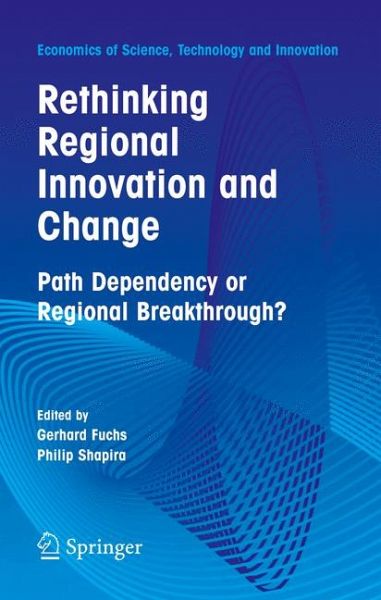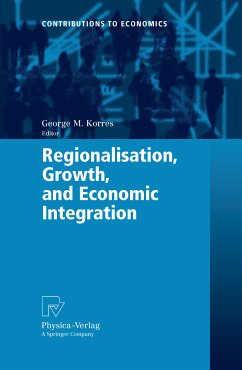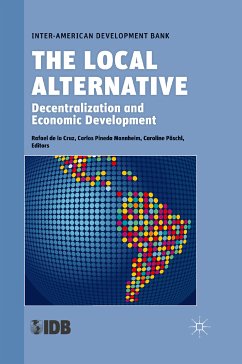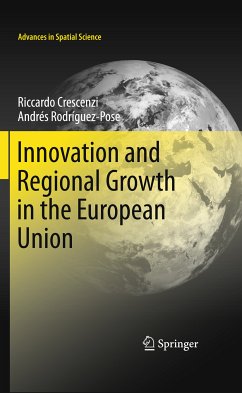
Rethinking Regional Innovation and Change: Path Dependency or Regional Breakthrough (eBook, PDF)

PAYBACK Punkte
56 °P sammeln!
Rethinking Regional Innovation and Change brings together papers from leading international scholars in the field of regional development and policy. The contributors examine the interactions between path-dependent developments, institutions, and governance structures that influence regional innovation capacity. Up-to-date case studies present diverse theoretical perspectives from economics, political science, geography, planning, and public policy." Taken as a whole, the volume offers a broad and up-to-date perspective on the inheritance aspect of an area's future. Without exception, the chap...
Rethinking Regional Innovation and Change brings together papers from leading international scholars in the field of regional development and policy. The contributors examine the interactions between path-dependent developments, institutions, and governance structures that influence regional innovation capacity. Up-to-date case studies present diverse theoretical perspectives from economics, political science, geography, planning, and public policy.
" Taken as a whole, the volume offers a broad and up-to-date perspective on the inheritance aspect of an area's future. Without exception, the chapters are insightful, interesting and a pleasure to read. Let us hope that this excellent work will find its way to the desks of authorities in charge for regional policy. If anything, the book still urges policy makers to start from the simple piece of wisdom that regions tend to go from where they are coming. Paradoxically, it is from this very notion of path dependency that most regional breakthroughs can be expected. " (Gert-Jan Hospers, Regions, Volume 256, April 2005)
" Taken as a whole, the volume offers a broad and up-to-date perspective on the inheritance aspect of an area's future. Without exception, the chapters are insightful, interesting and a pleasure to read. Let us hope that this excellent work will find its way to the desks of authorities in charge for regional policy. If anything, the book still urges policy makers to start from the simple piece of wisdom that regions tend to go from where they are coming. Paradoxically, it is from this very notion of path dependency that most regional breakthroughs can be expected. " (Gert-Jan Hospers, Regions, Volume 256, April 2005)
Dieser Download kann aus rechtlichen Gründen nur mit Rechnungsadresse in A, B, BG, CY, CZ, D, DK, EW, E, FIN, F, GR, HR, H, IRL, I, LT, L, LR, M, NL, PL, P, R, S, SLO, SK ausgeliefert werden.













